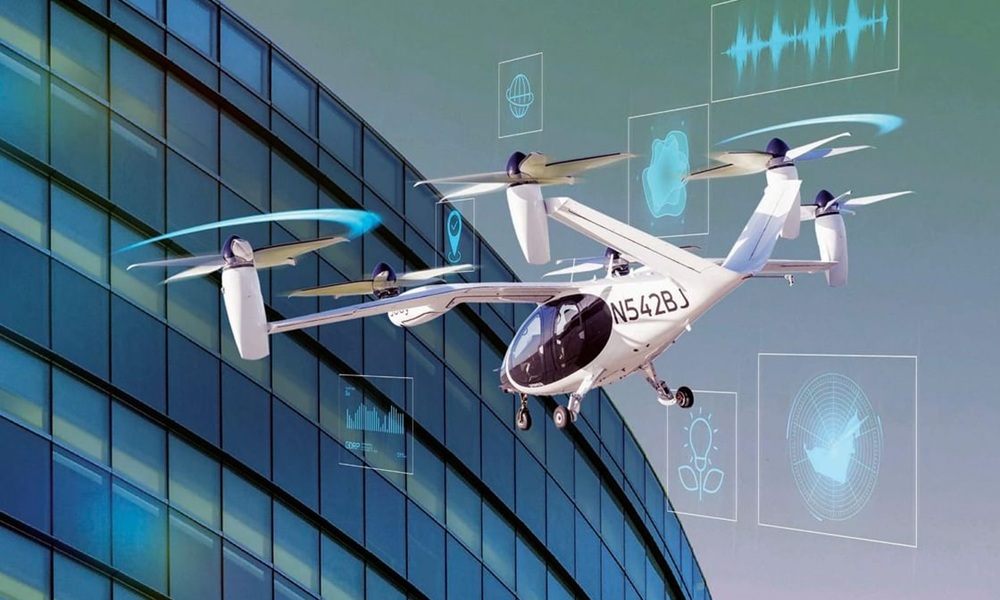At GITEX Global 2025, Dubai’s Roads and Transport Authority (RTA) has unveiled its own vision for the future of mobility — one that connects vehicles, infrastructure, and operators into a seamless digital ecosystem.
Across 11 initiatives, the authority showcased how artificial intelligence, IoT, and automation will transform fleet inspection, traffic control, and public transport. For the region’s logistics and fleet management community, these projects signal a decisive step toward an era where connectivity and data intelligence define operational success.
Among the highlights was AutoCheck 360, an AI-powered inspection system that can reduce vehicle inspection times from around 17 minutes to just 7. The technology aims to improve maintenance efficiency, cut human error, and reduce congestion at testing facilities — offering a glimpse of how automation could eventually streamline fleet service operations across both commercial and public sectors.
The RTA also introduced a Smart Connected Vehicles Network, designed to enable continuous communication between vehicles and infrastructure. This platform would allow for real-time traffic management, improved road safety, and predictive route adjustments — all essential tools for cities managing large volumes of commercial traffic.
Perhaps the most visually striking of RTA’s Gitex announcements was the Trackless Tram. Using optical navigation, GPS, and LiDAR instead of traditional rails, the system combines the flexibility of a bus with the capacity and environmental efficiency of light rail. Its ability to operate on adaptable routes could redefine how transit corridors are planned and managed — a development with long-term implications for logistics operators that rely on predictable access to key city arteries. RTA also highlighted its Safe Tracks (Rail Inspection/ARIIS) project, which uses laser scanning and computer vision to detect microscopic defects in rail infrastructure. By cutting inspection times by up to 70%, this innovation reinforces Dubai’s growing reputation for proactive maintenance and predictive infrastructure management.
RTA’s new Smart Mobility Platform for Safe Cities and its AI Factory further demonstrate how back-end technology can improve urban transport oversight. These initiatives combine fleet tracking, incident detection, and behavioural analytics to ensure that vehicles and drivers comply with city safety and sustainability standards. Enhancements to the S’hail and RTA Dubai mobile applications, alongside interactive kiosks and digital channels, will bring many of these new features directly to end-users and operators.
For fleet and transport companies, the implications are wide-ranging. Faster inspection and maintenance processes such as AutoCheck 360 could dramatically reduce downtime and optimise scheduling for commercial vehicles, directly translating into higher utilisation rates and improved delivery timelines.
Meanwhile, RTA’s Smart Connected Vehicles Network suggests that fleets will increasingly become integrated components of city infrastructure, feeding and receiving data that enhances routing, compliance, and performance. Fleets capable of interfacing with municipal systems — such as dynamic traffic control, congestion management, and emission tracking — will likely enjoy greater efficiency and regulatory alignment than those that remain offline.
The introduction of flexible transit models like the Trackless Tram shows how infrastructure can evolve without massive construction costs.
For the logistics sector, it suggests a future in which transit routes may adapt dynamically, opening new corridors or modifying delivery patterns in real time based on city needs. Similarly, innovations like Safe Tracks point to a future in which predictive maintenance extends beyond vehicles to include the roads and rails they rely on — creating a more consistent and data-informed environment for fleet operations.
However, with every opportunity comes a set of challenges. Integrating commercial fleets into connected networks will raise questions of data privacy, interoperability, and cybersecurity, as operators navigate different OEM systems and regulatory standards. There will also be the issue of access and cost — determining who pays for data connectivity and at what level of integration.
Fleet managers will need to consider the capital investment required to upgrade their hardware, telematics, and training programs to meet new digital standards. As automation and AI become more central to transport operations, human oversight, process redesign, and continuous training will remain essential to ensure safe and effective adoption.
Dubai’s RTA has made its position clear: the future of transport lies in connected ecosystems that merge infrastructure, data, and mobility services into a single, intelligent platform. For fleet operators and logistics providers across the Middle East, that future is fast approaching. The ability to plug into smart infrastructure — and extract actionable intelligence from it — will soon determine not only how efficiently fleets move but how competitively they operate in an increasingly digital world.
“We are keen at RTA to lead in adopting emerging technologies such as AI, the Internet of Things, and big data analytics to develop a smart and sustainable transport ecosystem that supports community happiness,” explained Mattar Al Tayer, Director General, Chairman of the Board of Executive Directors of Roads and Transport Authority (RTA).
Our participation in GITEX 2025 provides a platform to showcase projects that embody the transition from digital services to smart services with predictive capabilities and autonomous decision-making.”
Al Tayer added: “At RTA, we operate under a comprehensive strategy and roadmap for digital and smart transformation, built on leveraging emerging technologies such as the Internet of Things, artificial intelligence, big data, and predictive solutions.
“Our aim is to provide proactive and integrated services that support the quality of life in Dubai and reinforce its position as a global hub for innovation in future technologies. This is part of our Artificial Intelligence Strategy 2030, which aspires to make RTA a global leader in AI-powered mobility by enabling an integrated and interconnected ecosystem that enhances quality of life in Dubai.”
“This year, our participation focuses on showcasing a wide range of smart projects that represent a transformative step in our digital transformation journey. These include AI applications, predictive solutions based on big data analytics, and the use of the Internet of Things in managing assets and infrastructure. Through this participation, we also seek to engage with our strategic partners and explore the latest global innovations, thereby enhancing our ability to develop future-oriented solutions in the transport sector,” Al Tayer stated.



